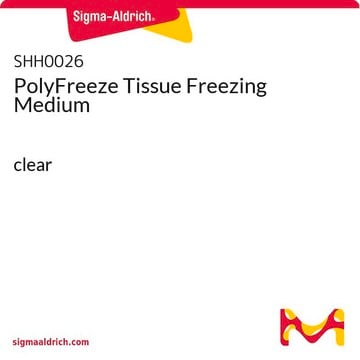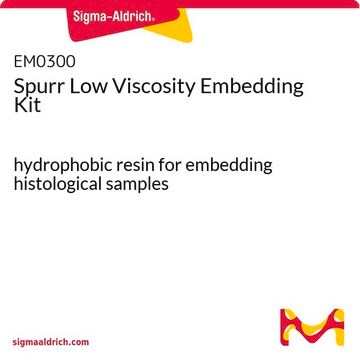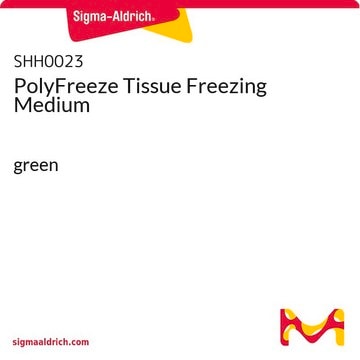E6032
Peel-A-Way™ embedding molds
Square S-22
Synonyme(s) :
disposable paraffin molds for embedding
Se connecterpour consulter vos tarifs contractuels et ceux de votre entreprise/organisme
About This Item
Code UNSPSC :
41116124
Nomenclature NACRES :
NA.47
Produits recommandés
Matériaux
polyethylene
Application(s)
hematology
histology
Température de stockage
room temp
Vous recherchez des produits similaires ? Visite Guide de comparaison des produits
Description générale
Peel-A-Way® embedding molds are disposable paraffin molds that are designed to be peeled from solidified embedding blocks. The dimensions are 22mm x 22mm square x 20mm deep. They are used in histology and pathology laboratories for embedding tissue or for embedding cells generated from suspension cultures in paraffin wax or other embedding media. Peel-A-Way® embedding molds feature a unique design, which allows for easy orientation of tissue samples.
Application
Peel-A-Way® Embedding molds are used for multiple applications like:
- for histology and immunohistochemistry studies of Multicellular Tumor Spheroids (MTSs) embedded in 1% agarose gel.
- in sample preparation for confocal microscopy, image acquisition, and image analysis of brain tissues. PBS containing 6% low-melt agarose solution was poured to cover tissues into Peel-A-Way® Embedding molds.
- Peel-A-Way® embedding mold is suitable for sectioning of embryos and in preparation of acute tissue slices of mouse spinal cord.
Conditionnement
288 molds per case
Informations légales
Peel-A-Way is a registered trademark of Polysciences, Inc.
p3xFLAG is a trademark of Sigma-Aldrich Co. LLC
Certificats d'analyse (COA)
Recherchez un Certificats d'analyse (COA) en saisissant le numéro de lot du produit. Les numéros de lot figurent sur l'étiquette du produit après les mots "Lot" ou "Batch".
Déjà en possession de ce produit ?
Retrouvez la documentation relative aux produits que vous avez récemment achetés dans la Bibliothèque de documents.
Les clients ont également consulté
Convergence of topological domain boundaries, insulators, and polytene interbands revealed by high-resolution mapping of chromatin contacts in the early Drosophila melanogaster embryo
Stadler MR, et al.
eLife, 6-6 (2017)
Célia Fourrier et al.
Biochemical and biophysical research communications, 534, 107-113 (2020-12-15)
Measurement of autophagic flux in vivo is critical to understand how autophagy can be used to combat disease. Neurodegenerative diseases have a special relationship with autophagy, which makes measurement of autophagy in the brain a significant research priority. Currently, measurement of
Silvia Belluti et al.
Journal of experimental & clinical cancer research : CR, 40(1), 362-362 (2021-11-17)
Approaches based on expression signatures of prostate cancer (PCa) have been proposed to predict patient outcomes and response to treatments. The transcription factor NF-Y participates to the progression from benign epithelium to both localized and metastatic PCa and is associated
An Acute Mouse Spinal Cord Slice Preparation for Studying Glial Activation ex vivo
Garre JM, et al.
Bio-protocol, 7(2) (2017)
Antony Fearns et al.
PLoS biology, 18(12), e3000879-e3000879 (2021-01-01)
Correlative light, electron, and ion microscopy (CLEIM) offers huge potential to track the intracellular fate of antibiotics, with organelle-level resolution. However, a correlative approach that enables subcellular antibiotic visualisation in pathogen-infected tissue is lacking. Here, we developed correlative light, electron
Notre équipe de scientifiques dispose d'une expérience dans tous les secteurs de la recherche, notamment en sciences de la vie, science des matériaux, synthèse chimique, chromatographie, analyse et dans de nombreux autres domaines..
Contacter notre Service technique










